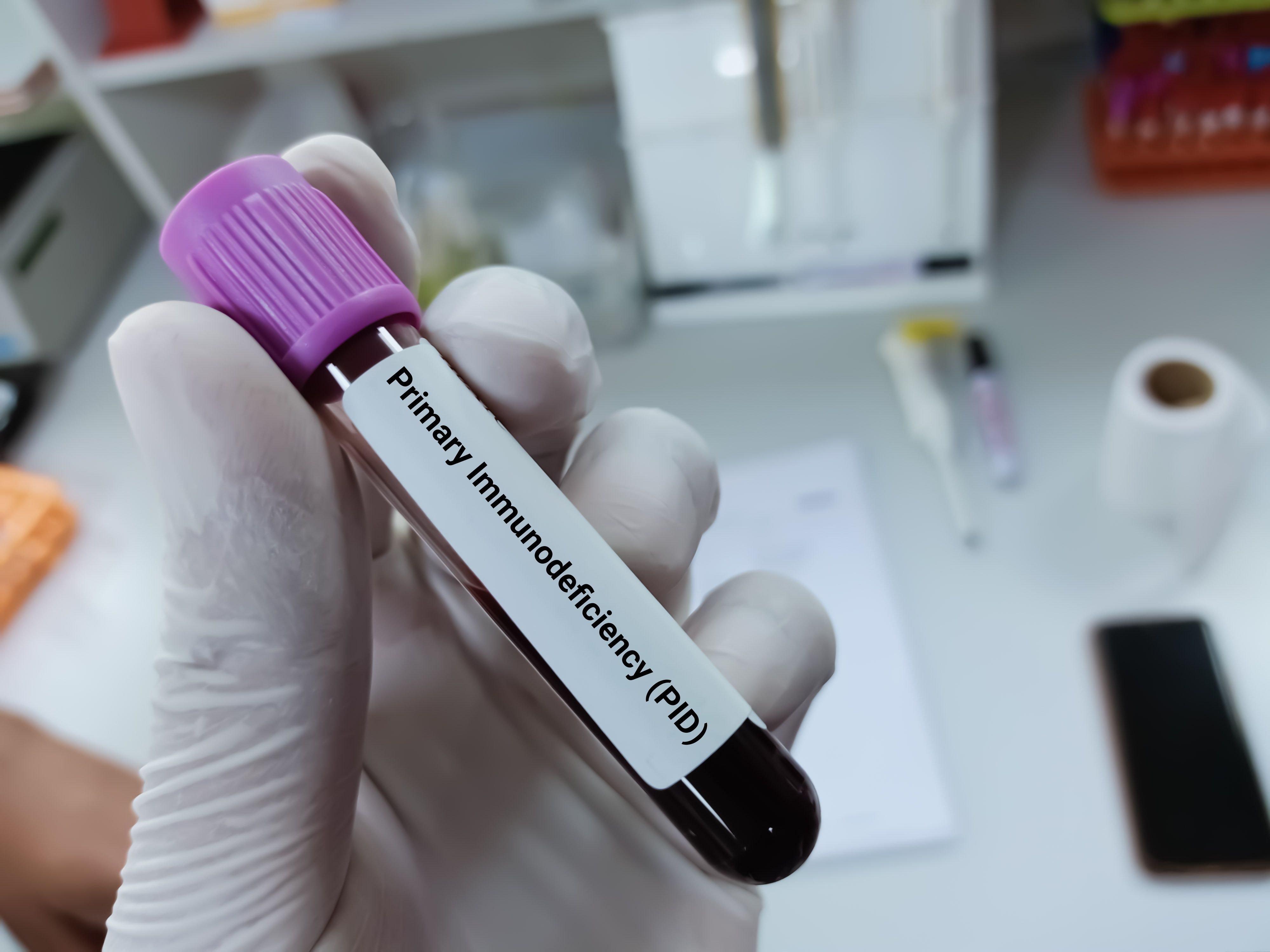FDA approves expansion of primary immunodeficiency medicine for treatment in children
The FDA recently approved Hyqvia, expanding its use to treat pediatric patients with primary immunodeficiency (PI) aged 2 to 16 years.
Primary Immunodeficiency test | Image Credit: © Innovative Creation - Image Credit: Innovative Creation - stock.adobe.com

According to a recent FDA approval, immune globulin infusion 10% (Human) with recombinant human hyaluronidase (Hyqvia; Takeda) can now be used to treat children aged 2 to 16 years with primary immunodeficiency (PI).
According to a press release from Takeda, the FDA approved a supplemental biologics license application (sBLA) for expanded use in this patient population. Hyqvia, first approved for use in US adults in 2014, is the only subcutaneous immune globulin (ScIG) that can be administered once a month (every3 or 4 weeks), according to Takeda. The liquid medicine contains recombinant human yaluronidase and immunoglobulins (Ig) and is infused under the skin into the fatty subcutaneous tissue.1
PI can increase susceptibility to infection, as more than 400 disorders affecting the body’s immune system could be categorized as a form of PI.
“Families of children living with [PI] may feel overwhelmed by their child’s chronic medical needs. When it comes to treatment, having choices can mean a great deal to families,” said Jorey Berry, president, and CEO of the Immune Deficiency Foundation. “The approval of this new PI treatment for children 2 to 16 years old offers an alternative for health care providers and families who might prefer a less frequent treatment option that can be administered subcutaneously at home, after appropriate training, or in an infusion center.”
The FDA-approved expanded use of Hyqvia for pediatric patients comes after positive results were demonstrated in a prospective, non-controlled, open-label phase 3 clinical trial (NCT03277313).2 The trial included 44 patents with PI aged 2 to 16 years. After a 12-month trial participation period, data demonstrated efficacy with respect to the occurrence of acute serious bacterial infections (aSBIs), a primary endpoint of the trial.1
The rate of aSBIs was defined as the mean number of aSBIs per participant, per year.2 The mean aSBI rate per year was 0.04, statically significantly lower (with an upper 1-sided 99% confidence interval (CI) of 0.21, P <0.001) than the predefinded success rate of less than 1 aSBI per subject per year.1 These results favor efficacy of Hyqvia treatment in pediatric PI patients.1
All infections per subject-year had a mean rate of 3.20, with an upper limit of the 95% CI of 4.05.1 Of all subjects who completed 12 months of participation, results from interim data analysis indicated similar safety profiles to adults.1
The most commonly observed adverse reactions occurringin more than 5% of patients in the trial were local adverse reactions and systemic adverse reactions. Local adverse reactions observedincluded pain, erythema, edema, and pruritus. Systemic adverse reactions included headache, antibody formation against recombinant human hyaluronidase (rHuPH20), nausea, fatigue, vomiting, and pyrexia.1
According to Takeda, limited human data are available about use of Hyqvia during pregnancy, and it is not known if Hyqvia can cause fetal harm or if it can affect reproductive capacity.1 The therapy should only be given to a pregnant woman only if clearly needed.1
References
1. Takeda receives FDA approval to expand the use of Hyqvia to treat primary immunodeficiency in children. April 11, 2023. Accessed April 14, 2023. https://www.takeda.com/newsroom/news-releases/2023/takeda-receives-fda-approval-to-expand-the-use-of-hyqvia
2. Efficacy, safety, tolerability, immunogenicity and pharmacokinetic evaluation of Hyqvia in pediatric subjects with primary immunodeficiency diseases. clinicaltrials.gov. Updated September 29, 2022. Accessed April 13, 2023. https://clinicaltrials.gov/ct2/show/NCT03277313